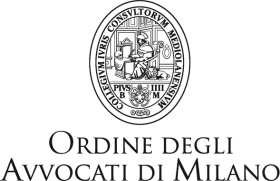Civil and commercial Mediation
What is it?
Within the context of Legislative Decree no. 28 of 4 March 2010, civil and commercial mediation is an activity carried out by an impartial third party which is aimed at assisting two or more parties in seeking an amicable agreement for the settlement of a dispute.
The main purpose of this activity is to reduce the number of new cases entering the justice system by offering citizens a simple and fast complementary tool to resolve disputes in a very short time and at a low cost.
Compulsory or optional mediation
Mediation attempts are compulsory for disputes relating to specific matters provided for by law (Legislative Decree 28/2010). With that being said, the option of accessing the mediation procedure remains open for all other disputes concerning disposable rights.
Under Article 5(I bis) of Legislative Decree 28/2010, mediation is compulsory when the dispute between two or more parties relates to:
- rights in rem (property, usufruct, acquisitive prescription, real estate sales, etc.)
- property division and inheritances
- family agreements on the transfer of equity interests
- lease and loan for use
- rental of businesses
- compensation for medical and health care liability
- defamation by the press or other means of publicity
- insurance, banking and financial contracts
- condominium
In all these cases, the attempt to resolve the dispute through the mediation procedure is compulsory, as it is a condition for the commencement of the court proceedings.
Delegated mediation is also mandatory. When the judge, even at the appeal stage, assesses the nature of the case, the state of the proceedings and the conduct of the parties, and orders the mediation procedure to be carried out, the procedure itself is a condition for the admissibility of the claim.
Legal assistance
To initiate or join a compulsory mediation, the parties must be assisted by a registered lawyer, just as they must be assisted by a lawyer to initiate or join an optional mediation under Art. no. 1 of the Rules of the Milan Bar Association.
Who is the Mediator?
The Mediator must meet the requirements of good repute, competence, neutrality and impartiality. They must manage the mediation procedure without, in any case, having the power to make judgements or decisions binding on the recipients of the service.
The Mediator's task is to help the parties find a satisfactory solution, hopefully leading to a mutually agreed solution that avoids going to court.
At the end of the first meeting, the Mediator draws up the minutes, which, if also signed by the parties, allow the condition of processability to be fulfilled. Then, if the parties reach an agreement at the end of the mediation process, the minutes are drawn up, which, once signed by the parties and their lawyers, constitute an enforcement order.
Mediation procedure
The mediation process (both compulsory and optional) consists of several stages:
- filing of the request for mediation (single or joint) with a mediation Body registered with the Ministry of Justice
- designation of the Mediator by the Body and scheduling of the first meeting between the parties no later than 30 days after the filing of the application
- communication to the parties with the date of the first meeting and the name of the appointed Mediator
- during the first meeting (and any subsequent meetings), the Mediator endeavours to ensure that the parties reach an amicable agreement to settle the dispute
- the agreement may be reached spontaneously by the parties or at the Mediator's suggestion. In their role, the Mediator is obliged to make a proposal for conciliation if the parties request at any stage of the proceedings and only if they have the necessary elements at their disposal. (Art. 6, c. 2 Regulation of the Body). The parties will, of course, be free to accept (within 7 days) or not the proposal.
- the procedure can be concluded:
a. negatively:
- at the first meeting, due to the non-adherence of the called party or the failure of all the parties to agree to continue the procedure and in both cases, for compulsory mediations, the negative report drawn up will serve to fulfil the procedural condition.
- this will be done at the end of the procedure if the parties do not reach an agreement
b. positively: by reaching an agreement. In this case, the Mediator draws up minutes to which the text of the agreement is annexed and, if signed by the parties and lawyers, has the value of an enforcement order.
Online processing
The initial meetings are all scheduled remotely. Only if, after agreeing to the first meeting, one or all of the parties request a face-to-face meeting will the first meeting be rescheduled. With the consent of all parties, mediation meetings may be held online.
The online mediation service complements the wider service offered by the Body. It may represent an additional means of use and allow greater flexibility and speed in the management of the procedure.
